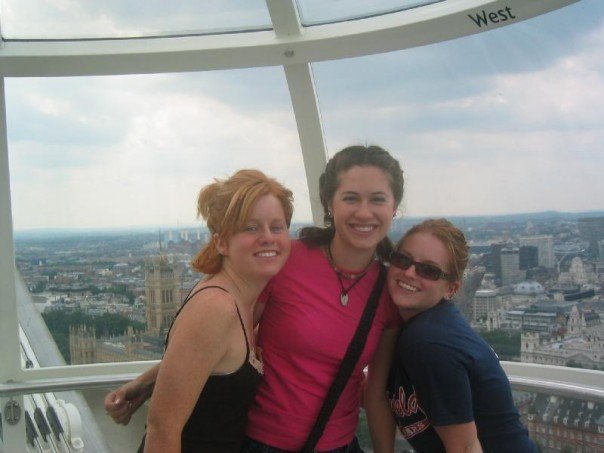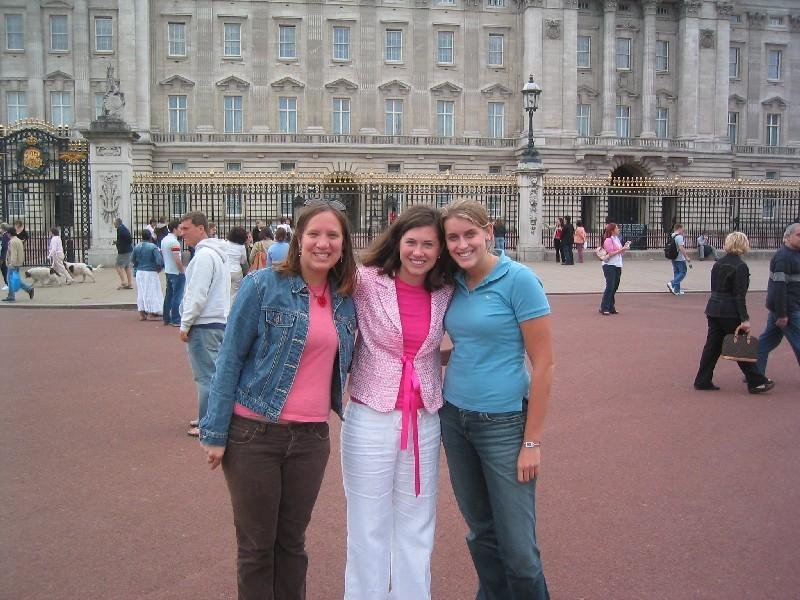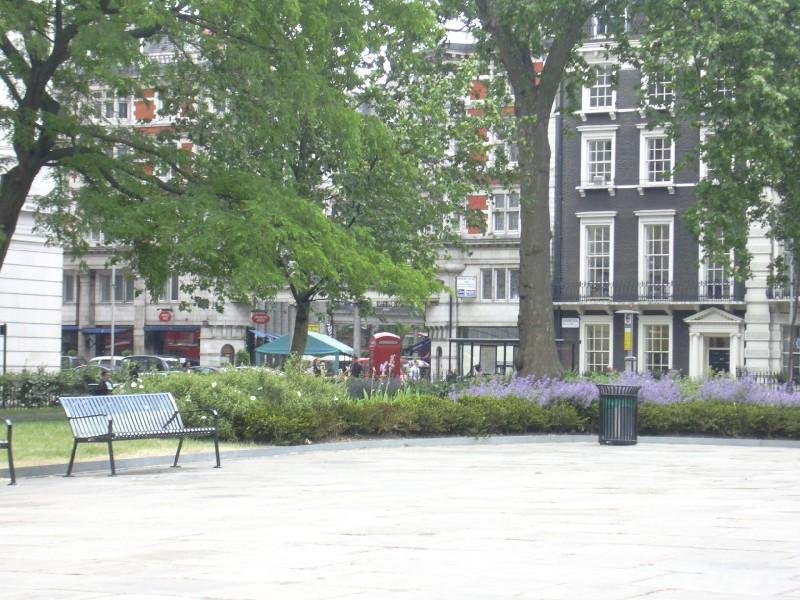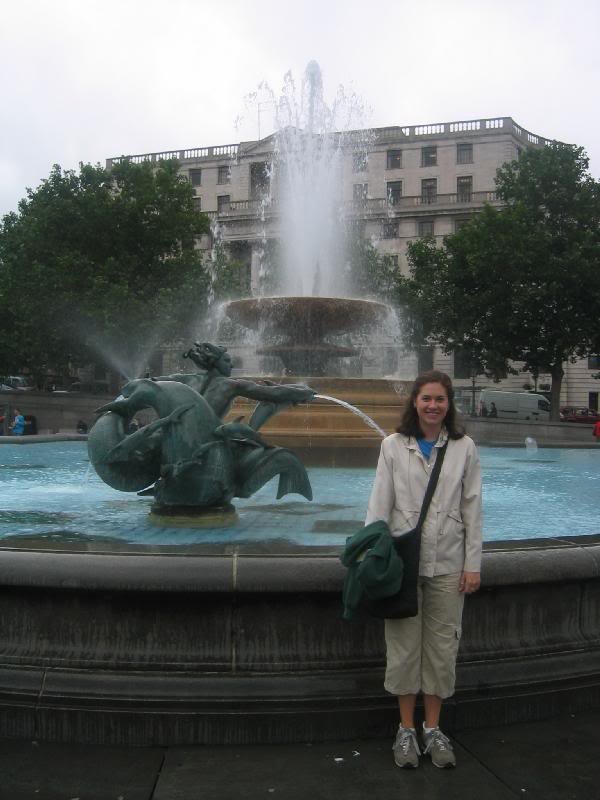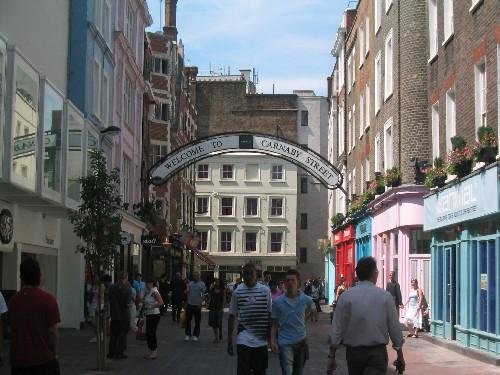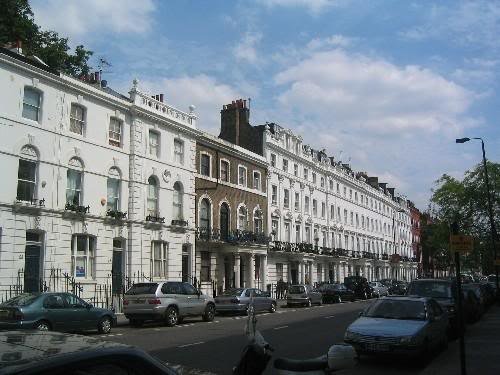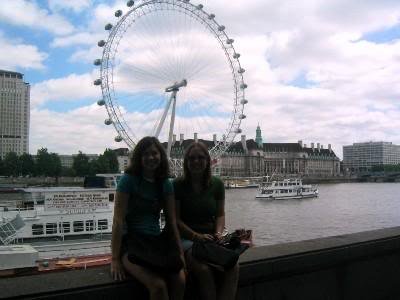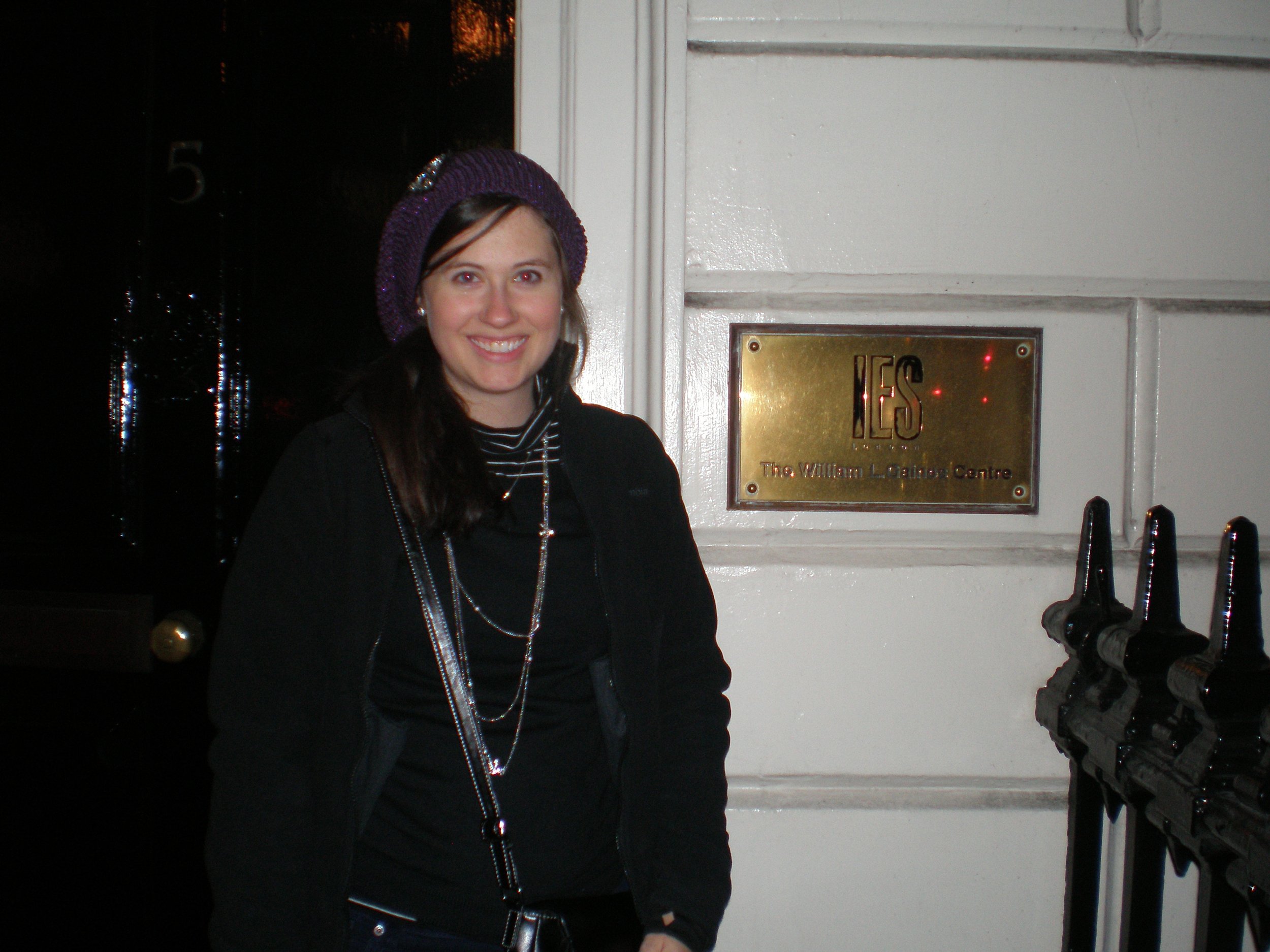What I Wish I Knew Before Studying Abroad in London
Studying abroad in London can be life changing, but there are SO many things to consider in that process.
Below, I’m sharing what I wish I knew before studying abroad in London as well as some travel tips to help you prepare for your time in this incredible city.
I first visited London with my family just before I went to college, and all I could think about was how quickly I could return.
When I stumbled upon a study abroad fair at my university during my freshman year, I discovered a way to combine my love of school with my love of London and started a long journey towards adding overseas education into my academic resume.
My London study abroad experience made a huge impact on me as a college student, and the experience I had in England exceeded every expectation I had going into it.
If you’re here, I imagine that you’re also considering a similar experience.
In short: do it.
Years later, I have been to London another 6 times, but none of them impacted me the way that study abroad experience did.
Here are a couple of things that I wish I’d known before I got on that plane to spend months in London.
What I Wish I Knew Before Studying Abroad in London
1. Set your budget higher.
I paid for my entire summer study abroad program out of my own pocket, thanks to my paychecks from three different part-time jobs that I had during my sophomore and junior years.
Me in the Cotswolds, one of the few excursions that I budgeted for while studying abroad
I thought that the extra £500 I'd set aside would be enough for food, sightseeing, and souvenirs, but I was so wrong.
I think I had all of £20 in my pocket when I came back to the U.S. at the end of the summer.
I really should’ve budgeted at least twice (or three times) as much as I did because I had to turn down some opportunities because my budget was so tight.
My roommate and friend from home went on a long weekend trip to Scotland with another of our hallmates, something I had to decline because I literally didn’t have enough money to cover the train ticket and eat that week.
It took me another 7 years, but I finally managed to get to Scotland—and this time with my husband in tow. (We still traveled to Scotland on a budget, though, because I’m always trying to stretch those dollars!)
Me on the Brighton Pier after taking the cheapest train from London for the day
I also had to eat sandwiches that I made every day because I didn’t have the budget to eat out pretty much ever. In fact, I can remember eating a £3 jacket potato once when I forgot my lunch at my dorm, and a £5 bowl of noodles at Wagamama’s one night.
And that’s the extent of my eating out while in London. It’s a shame because London has some really incredible restaurants that I would’ve loved to try.
Ultimately, know what your budget is going into your study abroad experience and stick to it. This isn’t the time to rack up credit card debt.
Do your research before you go to determine what a realistic budget is (which I didn’t. I just sort of guessed at a reasonable number), so you’ll have wiggle room for those occasionally extras.
2. Embrace every opportunity.
Since everything from your friends to your dorm room to your school is new during this time, the London study abroad experience can be completely overwhelming.
I'm a bit of a sit-back-and-let-the-dust-settle person, so I missed out on several things those first few weeks as I was trying to find my new normal.
You really have to dive in and just let the overwhelming feelings carry you along.
Compare that to the 2 girls who lived down the hall from me who went clubbing the first night we were all in London—after they’d just gotten off of a 24 hour flight from their homes in California.
While that might be a bit too much for the first day, commit to that kind of exploration while you’re in London.
As Samuel Johnson said, “When a man is tired of London, he’s tired of life.” And that’s true. There’s always something going on here.
Plus, your hosting school will likely have events, parties, dinners, and more planned for you.
Say yes to as many things as you can mentally handle while also keeping up with your schoolwork.
This is a once in a lifetime opportunity that you can’t ever repeat, so I cannot emphasize how much you should work to make the most of it.
3. Be prepared for anything, good or bad.
I made some incredible friendships while I was in London, and I lived on my own—really, truly on my own—for the first time ever during my study abroad experience. If I got into a jam, I couldn’t call my parents or my boyfriend to come make everything better.
That was the first time that I realized that I was capable of incredible things, that I could handle the stress of learning a new culture and shopping in new supermarkets, and navigating the Tube system.
On the flip side, I also lived and went to school in central London during the 2005 terrorist bombings, one of which happened just a block or so from my school.
It brought world politics directly to my front door, and I was not prepared at all.
In fact, it was one of the scariest things I’d experienced to that point—and, honestly, years later, it still ranks up there as one of the worst things I’ve gone through.
I happened to be on a bus on the way to a field trip in Trafalgar Square when the news began to break about the bombing.
A Tube car and a double decker bus had been hit and over 50 people died that day: cell phone communication was impossible for hours, planes were grounded, and there was so much confusion everywhere.
London as a whole reeled from the news in the hours after the attacks, but in the days afterwards, I saw how strong London was.
That week was supposed to be a joyous one--London had just found out that it had won the 2012 Olympics bid, and there was a huge celebration planned in Trafalgar Square to official announce the good news.
Instead, that celebration was converted into a public rally to remember those who'd died and to call for peace. I stood shoulder to shoulder with people from all over the globe, people who, for that one day, were united in our desire to be one with London.
However, it did teach me to be more self-reliant, and it showed me how resilient London was, so some good came out of the deep tragedy that occurred that day.
I don’t tell you this to scare you as the probability of something like that happening again during your study abroad experience is next to zero.
Just know that 99% of your time abroad is going to be amazing. Don’t let that 1% sour the entire experience for you.
4. Don't just study the entire time.
I am a natural bookworm. I've loved to read since I made my way through "Curious George Flies a Kite" on my parents' kitchen floor when I was 5 years old.
I ended up graduating college magna cum laude, and I later went on to get my master’s degree and teach college English.
Because of this, school and I have always been a good fit, and I put my studies ahead of everything, often to a fault.
A lot of study abroad advice out there will tell you that while studying abroad does mean you'll be in school — and you should study while you're there — you also need to put the books down and live while you're there.
Those credits you’re taking definitely count, even if you’re using them as electives, so you don’t want to ignore your classes all together.
However, if possible, find a workable school-life balance so that you’re spending at least as much time outside of your room as you are in there studying.
If you’re taking a particularly hard or reading-heavy class, take your studies with you so you can immerse yourself in London more.
Take your next novel to an afternoon tea, and read while you nibble on scones.
NOTE: If you’re interested in learning more about tea experiences in London, check out my British Museum afternoon tea review!
Or, pack up that math book and head over to Hyde Park to do your work while you picnic.
Know that your experiences living in the city, touring historic places, and trying new things is JUST as important as memorizing for your next test.
I took 2 English classes while I was there, so it was incredible to read a play by Shakespeare and then go get a cheap groundling ticket to watch that same play in the Globe Theatre.
5. Know that this short time abroad will change your entire life.
For me, my study abroad program literally changed the entire trajectory of my life.
My summer study abroad program led me to law school, where I wanted to go into international law. When I realized I hated law school, I dove into a master's program in literature, where I wrote my thesis on post-World War II London novels.
PIN ME!
From there, I went into teaching college literature, and from there, I made the leap into travel writing, which is where I should've been all along if I'm honest with myself.
The vast majority of my professional life started with that one London study abroad program.
Those months in London were such a deeply important moments in my young adulthood.
It's rare that a week goes by when I don't think of the months I spent in London, and I'm grateful that I was able to include those experiences in my time at Clemson University.
You might have plenty of ups and downs while you’re studying abroad in London, and that’s okay. Just let the experience wash over you and move through as you try to see and do as much as your time and budget allows.
Sometimes, we don’t realize the impact of our experience until days, months, or even years after they’re over.
I’ve had students, friends, and colleages tell me about their study abroad experiences, and that life changing aspect is nearly universal.
No matter what happens, you won’t be the same person who got off the plane in London once you finish your program.
6. People are the same, even halfway around the world.
Before living in London, I'd been on many trips with my parents, several of which were outside the country.
But, since I'd never been completely on my own before, I'd never fully realized how much people are alike even when culture and distance divides us.
I had bus drivers kindly help me find my stop when I was confused, which was pretty much every time I took the bus for the first two weeks.
I had Tube workers patiently (oh, so patiently) help me figure out how much was on my Oyster card. Again. This was back in the dark ages when no one had a smartphone to check these things.
At the bookstore, at the grocery store, at the open air markets, I would bumble my way through things.
I was just one person in this big city, and it would've been so easy to push me to the side or be annoyed with me.
But, 99% of the time, I was met with friendliness and patience, something for which I will always be grateful.
Don’t be intimidated by the fact that London is huge and you’ll feel very, very small. People are still people, and the vast majority are kind and helpful.
7. You’ll learn what it is like to fall completely in love with another culture.
I’d been obsessed with British literature and history for a couple of years before I studied abroad in London, but that summer was the time when I realized what it meant to be an Anglophile.
I studied Shakespeare's plays before taking my position with all of the other groundlings to see a performance of Macbeth in the Globe.
I poured over new foods with strange names in the grocery store:
Hob Nobs with their "nobbly oaty bits",
digestives (which are nowhere near as disgusting as they sound),
mustard mayonnaise, a strange concoction of condiments that tastes neither like mayo or mustard or the combo of the two, and
spotted dick, which is TOTALLY not what you're thinking of, you perv. It's a type of canned pudding. Obviously.
I learned the variances in British accents, and, by the end of the session, could more or less tell you from where a person hailed in the British Isles.
I was obsessed with the minutiae of Britain and all of the big stuff and everything in between. And years later, I'm still going strong. After all, I did name my first kid Britton!
The process of learning to love another culture than the one you grew up in is daunting and often scary. It can even feel a bit sad as you feel yourself growing away from the person you were at the start of the program.
But, it’s also a wonderful experience that makes you uniquely poised to experience the world. This process makes you more open-minded and accepting of people with different experiences that you.
Studying Abroad in London Tips
Do your research on the school in London.
I can’t stress this enough: the school you partner with is crucial to your experience.
Just as I’m sure you did research to determine the college that was the best fit for you in the U.S., you’ll need to do the same here. All schools and programs in London aren’t the same.
They vary wildly on the programs, excursions, pricing, and professional opportunities they offer. Some offer home stays with local families, while others put students in more traditional dorms.
Some have a sprawling urban campus, while others are more compact.
Some are in Zone 1 in the heart of London, while others are further out of the city centre.
I was going to a large, rural, state university (Clemson), so I wanted study abroad school that had more of a private, intimate feeling.
Clemson didn’t have a direct study abroad partner school in London, only one that was elsewhere in England. I was committed to living in London specifically, so I had to find another partner school for my program.
After much research online and talking with different study abroad reps, I decided to go through IES Study Abroad.
They’ve been around for decades, which I liked, and their reps were incredibly helpful and open.
Me in front of the IES school building in Bloomsbury
The London school was small and located in Bloomsbury, another 2 things I loved. I took classes with only 8 other students, so I was able to get to know my professors really well. One of them even wrote a letter of recommendation for me when I was applying to law school a few years later!
The school buildings were only a couple of blocks from the British Museum, so I often spent my lunch breaks wandering around the collections there.
While I could’ve gone to a more traditional college or university while in London, I am so grateful that I found such a good fit for my program.
Do your research on which part of London you’ll be living in.
I lived in their dorms on Manresa Road in Chelsea, which was a bit of a hike, but I actually loved the commute. Chelsea is one of the poshest parts of London, and it felt safe no matter the time of day or night.
The dorm rooms themselves were tiny, but that’s more of a European problem than one specifically with the IES dorms.
I’d talked to many other study abroad programs before settling on IES, and I found that many of the other programs’ housing arrangements were either in less nice parts of town or further out from the city center.
London, in general, is a safe city, and I felt just fine walking around as a young woman there.
You’ll want to like the part of the city that you live in, so do some research on what’s nearby and how far you’ll have to travel on the Tube to get to major attractions.
It costs more to travel from Zones 2-8 into Zone 1, where everything is located, so you’ll want to take that into account when selecting a program and its housing.
Also, keep in mind that even traveling within just Zone 1 can often take up to an hour depending on where you’re going, train delays, how often the trains arrive, and rush hour traffic.
Check to see how your credits will transfer.
Of all of the hoops I had to jump through to do an outside study abroad program (meaning one that my home university had not already partnered with), the credit transfer process was the most annoying.
First, I had to determine which classes I wanted to take in London, and then get full course descriptions from IES.
I then had to take those course notes to my department head and convince him that the 2 English courses I was interested in taking should actually transfer to something other than a random elective.
I was an English major at Clemson, and I was proposing to take a Shakespeare course and a Modern British Literature (post-1900) class.
My department head wanted to classify these as electives because he wasn’t sure that the rigor would be the same as if I was taking them at Clemson. (Eye roll.)
I needed them NOT to be electives because my English course load was intense, and my program required both a Shakespeare course and a modern British literature course.
It seemed like an easy solution.
I finally won him over, and he signed off on the paperwork after several emails and in-person meetings.
Then, I had to take all of THAT to the registrar’s office and explain the situation to them all over again. They, too, weren’t convinced, and I had to repeat the process.
Long story short, I finally got those 6 hours credit for my English classes!
If you’re doing a direct partner school with your home university, that process should be much easier.
But if you’re going out of the usual system and picking a third-party program, expect to navigate some red tape.
No matter what, be prepared to argue that your study abroad courses should count. Take the elective credit if nothing else.
London is expensive.
I mentioned my budgeting woes earlier in this post, but only part of the problem was me.
London is one of the most expensive cities in the world, which means high prices on everything from rent to your favorite takeaway.
Part of my issue with my lowly summer budget after room and board were paid is that living in rural Clemson, South Carolina, is nowhere near in line with the cost of living in London.
My weekly grocery bill would run nearly twice what it was in Clemson, even when I was buying basics like sandwich bread, fruit, pasta, and the like.
Being aware of the general costs in London will help you create a reasonable budget for eating out, sightseeing, and tours.
You’ll learn where to get cheap food—Tesco is cheaper than Waitrose, for example—so keep track of what you spend and ask locals for tips.
I also fell in love with London Walks, which are incredible multi-hour tours of different areas of London for about £10 if I showed them my student card.
Also, don’t sleep on the TKTS booth in Leicester Square, which provides discounted same-day tickets to many of the West End plays. You’ll have to wait in line, and the availability of shows changes daily, but it’s a great way to score tickets that would otherwise be out of a student budget.
Don’t worry too much about traveling outside of England.
I had several people (with deeper pocketbooks) in my program who traveled elsewhere nearly every weekend.
Being so close to so many European countries is tempting, but I’d argue that this time and money could be better spent exploring the area you’re already in.
After all, England has thousands of years of history to explore across the country, and each part of the UK has its own dialects, customs, and attractions.
By train, you can see hundreds of castles, cathedrals, historic homes, and ancient ruins within an hour or two around London.
Those offerings, plus all of the world renowned tours, museums, plays, and galleries in London, means that you’ll have more to explore than you’ll have time—all without leaving the greater London area.
If you DO want to add on a long weekend in Scotland, Ireland, France, or other nearby country, ask at your college for student tours. These offer special pricing to those people who are currently enrolled at a UK school or study abroad program.
Another option to save money while traveling elsewhere in the UK is to combine your hotel and train into one with an overnight train. I took the Caledonian sleeper from Edinburgh to London, and it was SUCH a fun experience!
Show your student card everywhere for discounts.
I had a Clemson student ID when I went overseas, and that was accepted in many places for a student discount.
However, some of the UK tours and museums wanted me to have an international student card, which is why I bought an ISIC card. These run about £12, but they offer up a ton of discounts through the card, and they are considered acceptable student ID for places throughout England and Europe.
In addition to securing the cheaper student rate on tours and at museums, the ISIC card also gives you discounts on National Express bus tickets, bookings through Hotels.com, car rentals, amusement park tickets, and so much more. (I’m not an affiliate for ISIC; I just had a good experience with them during my study abroad program.)
Whenever I’d sign up for a tour, buy tickets to a museum, or book anything, I’d ask them if they had a student discount.
You’d be surprised how many places will knock off 10 or 20% if you’re a student, so it never hurts to ask!
Get prepared to live in a big city with all of the related big city things.
Up until I moved to London, I’d always lived in the suburbs or in rural towns. So, the transition to living in one of the biggest cities in the world was considerable.
If you’re like me, and you’re not used to living in a city, just know that there’s a learning curve.
Never take all of your cash with you at any time, and never put the cash you’re carrying in one place. I’d put some in my wallet in my purse, some in my school bag, and some in my pocket.
While London isn’t nearly as bad as other European cities for pickpocketing (Paris, I’m looking at you), there’s always a chance that you’ll encounter someone with sticky fingers on the Tube, at street markets, or in large crowds.
Carry a crossbody bag, put the bag in front of you, and casually hang onto the strap while you’re walking. This further discourages people from trying to take your bag.
There are groups of younger people in London called roadmen that will come up to a person holding a phone and just take the phone out of their hands. They will also take bicycles and handbags, too, basically anything that’s easy to swipe.
While it’s really unlikely that you’ll be a target, use street smarts. Always look around when you’re walking down a street, and don’t be afraid to duck in a shop if you feel uncomfortable.
Know that Londoners don’t chat, or even make eye contact on the Tube. They aren’t being rude; they’re just trying to get to work in peace. It’s not normal to make chit chat there in the same way that people do in my Southern hometown.
Get an Oyster card immediately.
An Oyster card is your key to London transportation.
Unlike daily or weekly tickets, the Oyster card is a digital card that automatically ensures that you’re getting the lowest price on every Tube, bus, or light rail trip.
You pre-load the card with any amount you’d like, and then top it up as you travel.
When you’re ready to take a ride, you’ll tap your Oyster card on the way into and then out of the Tube station, bus, or light rail station.
You can check your Oyster card status at any time online, and there are kiosks at the Tube stations. You can also ask any of the TfL (Transport for London) employees at the Tube station information offices for help.
And on that note, commit the Tube map to memory ASAP.
If you want ONE thing that will make you look like a local and not a visiting student, it’s the ability to know where you’re going on the Tube without having to reference the map.
The London Tube map is one of the easiest of the world city transportation maps to follow, and Henry Beck’s design literally set the template for similar maps across the globe.
Each line has its own name and color, and the stops along the way are clearly noted with a large white dot. It’s easy to see at a glance where the lines cross, and where you can transfer to other lines.
In this manner, you can travel across London’s different zones, which are numbered. Pretty much everything you’ll want to see is going to be in Zones 1 and 2, but you might find an obscure tour or museum that brings you out into Zone 3 and beyond.
If you know you’ll be traveling the same route regularly—between your dorm and campus, for example—learn the best route and commit it to memory.
And, whatever you do, ALWAYS stand on the right when you’re going up the escalators! Londoners get very grumpy when they’re trying to walk up or down the escalators on the left and there’s someone just standing there instead of on the right.
Learn some standard phrases in British English.
Once, my friend cut herself in a bookstore, and she went to ask the clerk if she could get a Band-aid.
The clerk looked puzzled and offered her a plaster. My friend and I then looked at the clerk as if she was crazy because we thought she was asking if we wanted something that we could patch a wall with.
Turns out, a plaster is a Band-aid, but you’ll never hear an English person refer to it as such.
Likewise, note that potato chips are crisps, zucchini are courgettes, and biscuits are cookies.
The subway is always the Tube, and the emergency room is called the A&E (accidents and emergencies).
We might speak a common language, but it sometimes doesn’t feel like it!
You’ll also want to check out my first timer’s guide to London which breaks down everything you’ll need to settle into your new home with suggestions on what to do and see while you’re there!
Did you study abroad during college? Would you be interested in a London study abroad experience?




